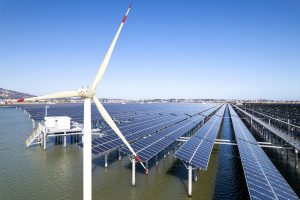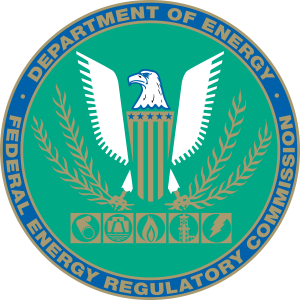 As AI-driven data center development accelerates, developers, communities and regulators are increasingly focused on water demand—both the volume required and the sources from which that water will be drawn. While industry attention has largely centered on electricity procurement and grid impacts, the availability and legal entitlement to a firm water supply has become equally material to siting, permitting and community acceptance. Particularly as surface and groundwater supplies become increasingly constrained and new projects are sited in regions experiencing tighter hydrologic conditions or growth-related supply constraints, project teams are increasingly integrating water supply analysis into early-stage development to address issues that can materially affect schedule, financing and long-term operations.
As AI-driven data center development accelerates, developers, communities and regulators are increasingly focused on water demand—both the volume required and the sources from which that water will be drawn. While industry attention has largely centered on electricity procurement and grid impacts, the availability and legal entitlement to a firm water supply has become equally material to siting, permitting and community acceptance. Particularly as surface and groundwater supplies become increasingly constrained and new projects are sited in regions experiencing tighter hydrologic conditions or growth-related supply constraints, project teams are increasingly integrating water supply analysis into early-stage development to address issues that can materially affect schedule, financing and long-term operations.
Securing U.S. Critical Mineral Supply Chains
On January 14, 2026, President Trump signed a Proclamation following the Department of Commerce’s investigation of the effects of imports of processed critical minerals and their derivative products on U.S. national security under Section 232 of the Trade Expansion Act of 1962. As detailed in our prior client alert, President Trump initiated the investigation on April 22, 2025, with a scope that includes the now 60 minerals listed in the U.S. Geological Survey’s “Critical Minerals List” as well as any subsequent lists and uranium. The Secretary of Commerce found that processed critical minerals and their derivative products are being imported into the United States in such quantities and under such circumstances as to threaten to impair U.S. national security.
In their latest client alert, President Trump Backs Commerce Department Findings, Directs Negotiations to Secure Critical Mineral Supply Chains, colleagues Sahar J. Hafeez, Robert A. James, Amanda G. Halter and Ata A. Akiner review the findings, recommendations and related initiatives, and explore next steps and implications for potentially affected companies.
ZEC 2.0: New York’s Zero Emissions Credit Program Gets an Extension and a Reboot
In a landmark move that could shape New York’s energy landscape for decades, state officials have taken steps to both preserve its existing nuclear power facilities and significantly expand its advanced nuclear capacity. These actions are part of a broader strategy to maintain grid reliability and meet both escalating energy demand and the state’s ambitious greenhouse gas reduction and zero carbon goals.
Navigating Wind and Solar Development Opportunities on State and Private Lands During Uncertain Times for Renewable Energy
 Recent executive actions and federal guidance have targeted wind and solar development, creating substantial uncertainty for the U.S. offshore wind industry and also reshaping the regulatory landscape governing onshore wind and solar development. Wind and solar projects on federal lands are now subject to heightened review processes and enhanced regulatory scrutiny. As a result, many developers are considering opportunities on state-owned and privately held lands rather than federal lands.
Recent executive actions and federal guidance have targeted wind and solar development, creating substantial uncertainty for the U.S. offshore wind industry and also reshaping the regulatory landscape governing onshore wind and solar development. Wind and solar projects on federal lands are now subject to heightened review processes and enhanced regulatory scrutiny. As a result, many developers are considering opportunities on state-owned and privately held lands rather than federal lands.
Trump Administration and Mid-Atlantic Region Governors Announce Emergency Reliability Action Targeting Data Center Load Growth
On Friday, President Donald Trump—together with governors across key Mid-Atlantic Region states—announced a new initiative aimed at addressing soaring electricity demand driven by large‑scale AI and cloud‑computing data centers. This joint federal-state initiative directs the regional wholesale power grid operator, PJM Interconnection, L.L.C. (PJM)1, to conduct an emergency auction to procure additional power plant capacity aimed at enhancing reliability and stabilizing power prices. Rather than issuing an executive order, as President Trump has done over the last year to address other energy issues, today’s action was issued instead as a non‑binding Statement of Principles, signed by the National Energy Dominance Council2 and participating governors.
FERC’s New Order on Data Center Co-Location: What Utilities Need to Know
On December 18, 2025, the Federal Energy Regulatory Commission (FERC) issued a pivotal order to PJM Interconnection, the nation’s largest regional wholesale power grid operator running the transmission system in the Mid-Atlantic region. The Order intends to help reshape how large loads—especially data centers—connect to the grid in the face of massive load growth from artificial intelligence (AI) hyperscalers.
issued a pivotal order to PJM Interconnection, the nation’s largest regional wholesale power grid operator running the transmission system in the Mid-Atlantic region. The Order intends to help reshape how large loads—especially data centers—connect to the grid in the face of massive load growth from artificial intelligence (AI) hyperscalers.
Maryland Enacts Climate-Cost Study Over Veto, New Jersey Advances Climate Superfund Proposal as Earlier State Laws Face Ongoing Court Challenges
Maryland lawmakers have overridden the governor’s veto to enact legislation directing a statewide assessment of climate-related costs, while New Jersey lawmakers are preparing a January committee hearing for the State’s pending Climate Superfund Act. Together, these actions underscore continued state-level interest in both study-based and liability-focused climate-cost attribution frameworks, even as four separate lawsuits challenging state climate superfund statutes in New York and Vermont proceed in federal court.
CARB Issues Proposed Climate Disclosure Regulations
On December 9, 2025, the California Air Resources Board (CARB) issued proposed regulations and a staff report for California’s comprehensive climate disclosure laws, the Climate Corporate Data Accountability Act (SB 253) and the Climate-Related Financial Risk Act (SB 261). These proposed regulations come less than a month after the Ninth Circuit issued an injunction temporarily halting enforcement of SB 261, at least until a January 9, 2026, hearing on the plaintiffs’ requested longer-term injunction through the remainder of the First Amendment challenge to the laws. The draft regulations would adopt some, but not all, of the provisions proposed by CARB in its public workshops on the laws to date, and notably would scale back applicability to those companies above a threshold level of sales in the state. The proposed regulations also define key terms, establish the program fee structures, explain fee enforcement and set initial reporting timelines. The written comment period begins on December 26, 2025, and ends on February 9, 2026. CARB will hold a public hearing on the proposed regulations on February 26, 2026 at 9 a.m. PST.
New California Law Mandates Prompt Resolution of Change Order Payment Disputes on Private Works of Improvement
On October 10, 2025, Governor Newsom signed SB 440, titled the Private Works Change Order Fair Payment Act. The new law introduces a process and deadlines for handling change order, time extension and payment disputes on private-works construction projects. SB 440 will apply to contracts entered into on or after January 1, 2026, and will remain in effect until January 1, 2030.
A Conceptual Shift for Space and Earth Station Licensing
In an effort to more effectively keep pace with and reduce the burdens on the rapidly evolving and expanding commercial space sector, the FCC has unanimously adopted a Notice of Proposed Rulemaking (NPRM) proposing a comprehensive restructuring and reform of its long-standing space and earth station licensing rules. With its breadth of scope and potential impacts across the space ecosystem, the NPRM also highlights the key role the Commission will play in advancing the Trump administration’s broader objective of enhancing American greatness in space and facilitating U.S. leadership and innovation.
In “Permissionless Innovation: The FCC’s Conceptual Shift for Space and Earth Station Licensing in the United States,” colleagues Jodi A. Goldberg and Betsy Craig explore how the NPRM is a public reminder that, through its statutory mandate to regulate the radiofrequency spectrum in the public interest, the FCC’s licensing authority over space operations has long extended beyond traditional communication satellites and their associated earth stations.
RELATED ARTICLES




